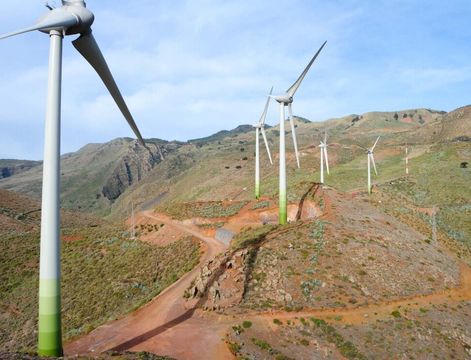
Optimisation of water cycle in Canarias
he Canary Islands Government held a virtual seminar on technological solutions to reduce energy consumption in water treatment and distribution.
RESOR aims at promoting best practices to support energy efficiency and renewable energy use in businesses of the secondary and tertiary sector in European islands and other remote regions.
Maximising energy savings and reaching high energy efficiency levels are crucial challenges currently faced by the EU.
The focus chosen by partners targets remote territories, which on one hand represent less favoured areas of Europe but which, on the other, are often well placed to employ innovative solutions and attract energy investments.
Remote regions, as those partners in the RESOR project, are characterised by a higher dependence on fossil fuels and general less efficient energy choices and behaviours among citizens and even more among businesses, for whom investment in renewables or energy efficiency are often not a priority or financially feasible.
RESOR was born as a response to the need for supporting businesses in the adoption of more sustainable energy behaviours and practices.
€1,044,675.00
Low-carbon economy
The objective of the project is to support energy efficiency and renewable energy use in businesses of the secondary and tertiary sector of the partner regions by improving current regional policies.
RESOR activities will envisage an interregional learning process involving staff from public authorities and representatives of relevant stakeholder groups. This learning process will result in the identification of best practices for the improvement of regional policy instruments supporting energy efficiency and RES use and in the draft of Action Plans to be implemented in each partner region.
A key element of the project are interregional site visits, where project partners share strategies and experiences on specific themes and brainstorm with policy-makers and stakeholders to select a number of best practices.
In parallel with the interregional site visits, partner regions organise seminars for organisation staff and local stakeholders to present to the results of the interregional learning process and develop guidelines for the drafting of the action plans.
RESOR learning process is conducted during 2018-2020, after which the findings are collected, analysed and compiled into regional action plans and into the RESOR compendium.
In 2020-2022 RESOR will move from learning to implementation. Regional actions plans will be put into practice and their progress closely monitored. Project recommendations and results will be widely disseminated to the other EU regions to provide them with the chance to take and replicate the lessons learnt.
RESOR is about working across borders and organisations, with the support of stakeholders, to find the best solutions for more sustainable energy behaviours and practices.
The policy instrument is the ERDF operational programme of the Canary Islands. The thematic objective is TO4 ‘Promoting energy efficiency and production and use of renewable energy’ and the only investment priority foreseen under this TO is IP4c aimed atenergy efficiency and use of renewable resources in public infrastructures, infrastructures with intensive energy consumption, especially water supply facilities, and in housing (including social housing). Currently the operational programme does not include any investment priority targeting energy efficiency in businesses. This is the main issue the project aims to address, for instance considering the importance of the service sector for the archipelago and consequently the consistent amount of energy consumption that these activities generate. Although the issue of energy efficiency in businesses is not targeted, the lead partner considers important to promote changes in this sense by adding a specific focus on companies operating both in the industry and the service sector. There is thus a clear untapped potential for improvement in terms of energy efficiency in the region and the OP could strongly contribute to unlocking such potential. For this reason, RESOR aims to support the introduction of such a priority – given the existence of a political will in this sense – through the exchange of experience and of practices with other regions characterized by the same geographical conditions and a similar economic structure.
The policy instrument addressed by the partner is the ERDF operational programme of Reunion. The thematic objective specifically is TO4 ‘Promoting energy efficiency and production and use of renewable energy’. Reunion’s operational programme under TO4 aims to to promote energy efficiency and use of renewable resources, especially in public infrastructures and housing including social housing (4IP4c). In tropical areas such as Reunion thermal rehabilitation is indeed very different from the situation encountered in continental Europe, thus there should be implemented tailored measures. Two key focus included under 4IPc are the limitation of air conditioning use and a more systematic use of solar water heaters instead of electric water heaters.
As for the lead partner, currently TO4 does not include any investment priority targeting energy efficiency and use of renewable resources in businesses specifically. Despite this, the partner who is the managing authority of the operational programme considers important to promote changes in energy efficiency and use of renewable resources also in companies operating in the industrial system and especially those working in the service sector, which is indeed the key economy sector of the region. Improvements are thus needed to include energy efficiency standards and prove that businesses’ energy investments in energy efficiency result in significant energy savings, economic opportunities and cultural value.
The policy instrument is the ERDF operational programme of Arores. The thematic objective specifically is TO4 ‘Promoting energy efficiency and production and use of renewable energy’ while the Investment Priority taken into account is IP4b ‘Promoting energy efficiency and the use of renewable energies in enterprises’. The policy instrument addressed falls under the Interreg Europe specific objective 3.1. IP4b is intended to promote energy efficiency and use of renewable resources in enterprises. Business support mainly focuses on promoting energy efficiency in their production process, starting from an auditing/study/energy analysis and then finding solutions, including the possible production of energy from renewable energy sources for self-consumption. The support measure can cover all sectors of activity.
Through the development and implementation of the action plan within the framework of the RESOR project, Azores expect to include in IP4b a more specific focus providing tailored support to businesses operating in the service sector and in the agro-forest one, paying special attention to meat and milk industries. On one hand, tourism is an emerging activity in the region and the businesses working in the field need to be supported in the uptake of eco-efficient measures; on the other hand the production, processing and marketing of agricultural products represent key economic activities for the archipelago and they should result in more sustainable processes.
The policy instrument is the ERDF operational programme of Madeira. The thematic objective is TO4 ‘Promoting energy efficiency and production and use of renewable energy’ while the IP taken into account is IP4b promoting energy efficiency and the use of renewable energies in enterprises’. The choice of this investment priority is based on the need to reduce regional external dependence, the import of primary fossil energy and environmental impacts, as well as to improve businesses’ competitiveness in a context where energy and technologies have increased costs due to the size of the market and the geographical conditions of the region. Energy efficiency and renewable energies contribute to lower operating costs, which have multiplier effects and favourable implications for the economy and employment. Through the RESOR project, Madeira expects to learn from other regions to fine-tune the improvement of this measure, while ensuring a more targeted support for companies operating in the manufacturing sector and the field of tourism. As for Azores, tourism is an emerging sector, with good prospects for the future development of the region, which should thus be supported towards more eco-efficient behaviours and processes. Manufacturing industry also represents an important economy activity to be considered given that it has suffered more than from a very negative evolution in recent years because of the economic and financial crisis.
The high operational costs of the companies contribute negatively to their competitiveness. An important part of the operating costs of the companies in Cyprus is related to energy costs, reflecting the national weaknesses in the field of energy efficiency and its dependence on oil imports. In the context of the programming period 2014-2020, the implementation of measures to improve energy efficiency in business as well as RES interventions will be funded.
Actions for energy upgrade of secondary and tertiary sector will contribute to reduce the energy costs and enhancing competitiveness of businesses, contributing to the wider objectives of supporting selected sectors in the effort to revive the country's competitiveness. The interventions promoted under the investment priority 4b will also contribute to increasing energy savings in primary consumption, thus contributing to the corresponding quantitative target set by the country in the National Energy Efficiency Action Plan and in the National Strategy for the Promotion of Renewable Energy Sources. The energy savings from the implementation of energy upgrades in the business sector according to the National Plan is estimated to reach 61 ktoe by 2023.
The policy instrument addressed by the partner is the ERDF operational programme of Epirus. The thematic objective specifically is TO4 ‘Promoting energy efficiency and production and use of renewable energy’. Epirus’s operational programme under TO4 aims to promote energy efficiency and use of renewable resources, especially in public infrastructures and housing including social housing (IP4c) and low-carbon strategies for the region, including urban areas(IP4e).
As for other partners, currently TO4 does not include any focus targeting energy efficiency and use of renewable resources in businesses specifically. The region of Epirus, who is the managing authority of the operational programme, considers important to promote changes in energy efficiency and use of renewable resources also in companies operating in the industrial system and in the service sector. Improvements are thus needed to include energy efficiency standards and prove that businesses’ energy investments in energy efficiency result in significant energy savings, economic opportunities and cultural value.
The policy instrument is the operational programme of Guadeloupe. The thematic objective specifically is TO4 while the Investment Priority taken into account is IP4b ‘Promoting energy efficiency and the use of renewable energies in enterprises’. The choice to include this measure was based on the need to reduce regional external dependence, imports of primary fossil energy and environmental impacts, as well as to improve businesses’ competitiveness in a context where energy and technologies have increased costs due to the size of the market and the geographical conditions. From the RESOR project Guadeloupe expects to learn from other regions to fine-tune the improvement of this measure, while ensuring a more tailored support for companies operating in the service sector, in particular in tourism activities. The economic tissue of companies is marked by the predominance of the services sector (according to the Tourism Development Scheme in 2011 there were 420,000 tourists and 5,000 businesses linked to tourism). However, the OP stresses on the fact that the region's companies suffer from a lack of competitiveness and a lack of own funds. It is why the partner is strongly committed to the improvement of the addressed policy instrument as the support of enterprises in energy efficiency and RES use is a key issue for the increase in their competitiveness and in the sustainability of the exceptional natural resources that characterise the island.
The policy instrument addressed by the partner is the ERDF operational programme of Martinique. The thematic objective specifically is TO4 ‘Promoting energy efficiency and production and use of renewable energy’ which includes two Investment Priorities: IP4a ‘Promoting the production and distribution of energy from renewable sources’ and IP4c ‘Supporting energy efficiency, smart energy management and renewable energy use in public infrastructure, including in public buildings and in housing’.
IP4a’s aim is to go towards an energy autonomy by increasing the use of renewable energies, particularly solar and thermal energy. IP4c is intended to promote energy efficiency and use of renewable resources, especially in public infrastructures and housing (including social housing).
As for other project partners, currently within Martinique’s TO4 of the operational programme there is no measure targeting businesses, which is the main issue the project aims to address. Martinique recognises the importance of promoting changes and improvements also in companies operating in the industrial system and especially those working in the service sector, which is actually the key economy sector of the region. Improvements are thus needed to include energy efficiency standards and prove that businesses’ energy investments in energy efficiency and use of renewable resources result in significant energy savings, economic opportunities and cultural value.

he Canary Islands Government held a virtual seminar on technological solutions to reduce energy consumption in water treatment and distribution.
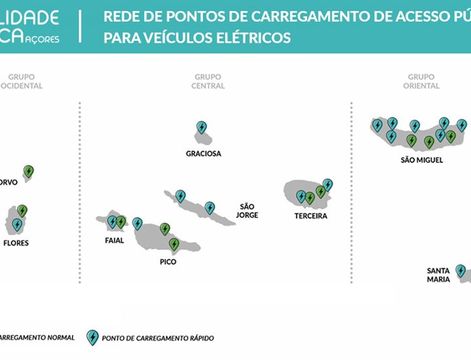
Azores are the one of the Portuguese regions with more EV public charging stations per capita
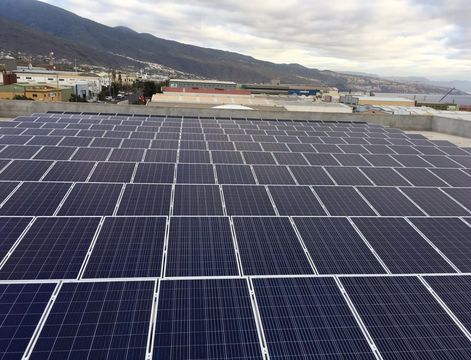
Ecological Transition organises a conference to promote self-consumption of energy among the population.
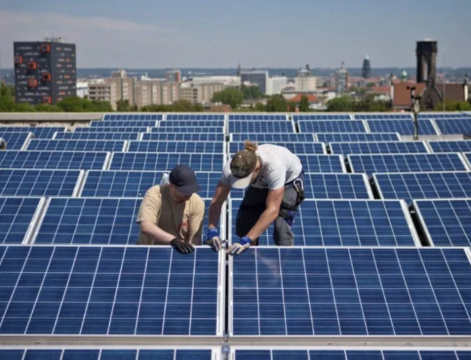
The government will take one step further in shared self-consumption when the state of alert ends: it will create the hourly distribution
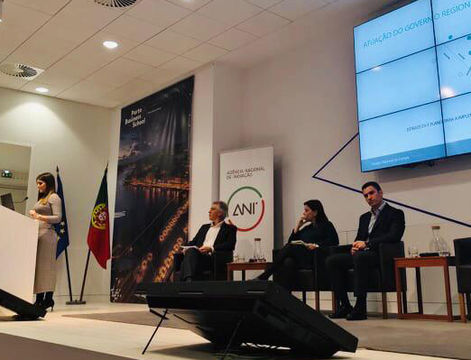
Azores recognised for their huge potential on new disruptive solutions regarding energy and electric mobility.
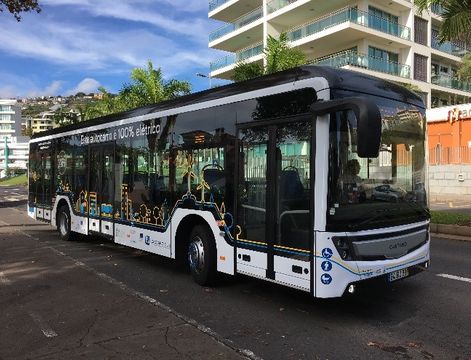
Madeira and Porto Santo islands conducted a demonstration of three electric buses since December 2017 under the Civitas Destinations Project
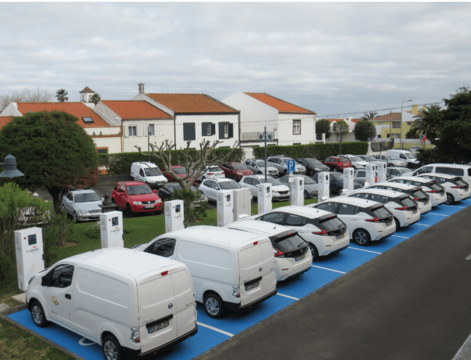
Azores’ Vehicle-to-Grid project strives for a more efficient and intelligent energy system
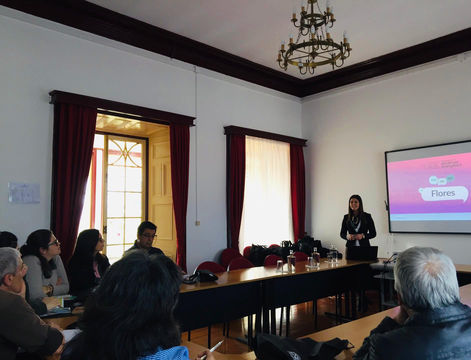
Electricity in Flores island (Açores) increased from 46%, in 2018, to about 55% in 2019

Subscribe to RESOR newsletter